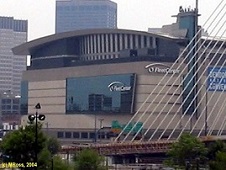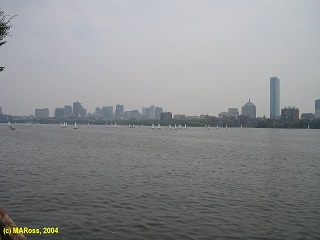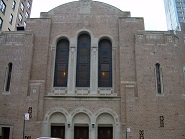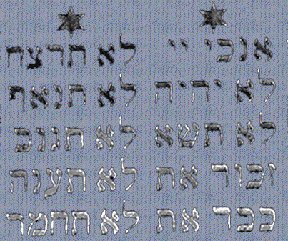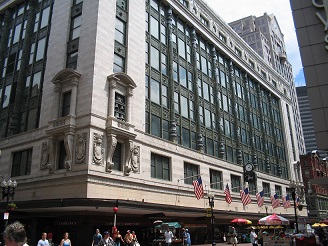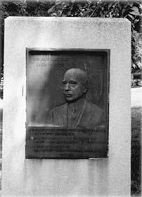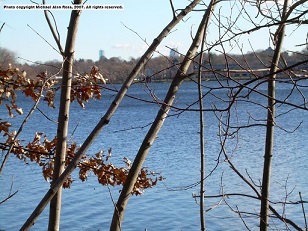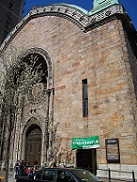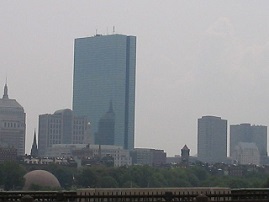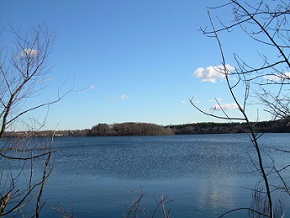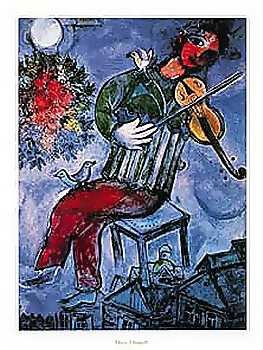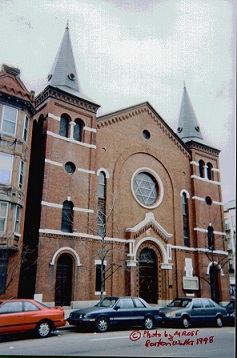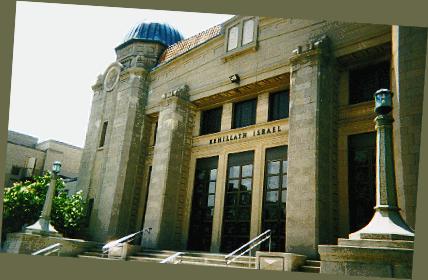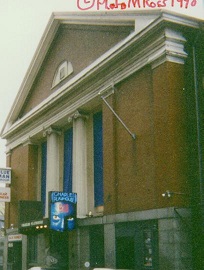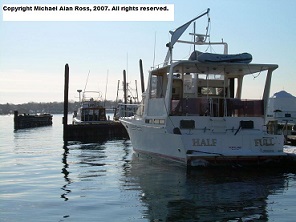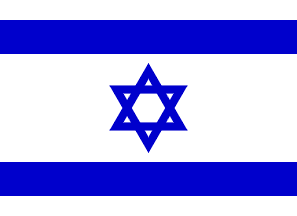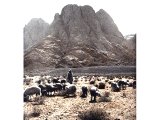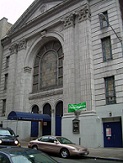CLICK HERE TO VIEW OUR MOST RECENT WEBSITE
JEWISH SITES & HISTORY IN PHOENIX AND SCOTTSDALE, ARIZONA
Discover Jewish History in Some of America's Greatest Cities!
Jewish Friendship Trail Guidebooks, as of 2020, only are available directly from the author/publisher. To purchase a Jewish Friendship Trail Guidebook, Email: BostonWalks
NOW AVAILABLE - (1) Phoenix Scottsdale Jewish Friendship Trail GuideBook
with 7 Tours of Sites of Phoenix Scottsdale Jewry!
Was $19.95 USD Now $8.00 USD + $3 Media Mail
Order your copy now directly from publisher.
(2) BostonWalks Jewish Friendship Trail GuideBook
with 6 Tours of Sites of Boston, Brookline, and Cambridge Jewry!
Was $19.95 USD Now $8.00 USD + $3 Media Mail
Order your copy now directly from publisher.
(3) BostonWalks The Ten Commandments GuideBook
with creative suggestions for approaching our Ten Commandments!
Was $19.95 USD Now $8.00 USD + $3 Media Mail
Order your reduced price copy now directly from publisher.
Email: BostonWalks
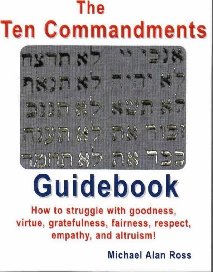




Discover the Boston homes of Justice Louis Dembitz Brandeis here! |
Celebrating 361 Years |
Click here to connect with more of Boston's Best! Boston, MA
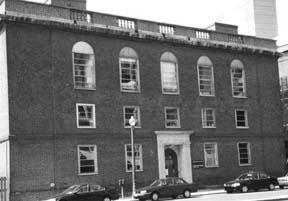
"West End House" circa 2004 - Begun by 35 Jewish boys in 1903!
Now available!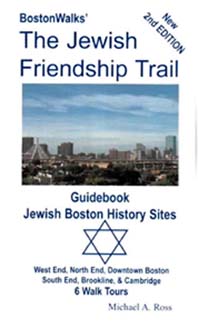
The Jewish Friendship Trail Guidebook6
Self-Guided Walking/Bicycling Jewish Boston History ToursCovers
Boston, Brookline, and Cambridge Softcover 198 pages with maps &
b/w photos Click here |
Now available!
Ways to Self-Struggle with
Classic MoralsIn Song, Poetry, and Prose
Covers 10 Commandments Plus One Other! Softcover 153 pages with
practical suggestions pages! Click here |
Boston Walks presents
Turn of the Century EnterprisesAmongBoston's Jewish Immigrants
Copyright
Michael Alan Ross, 1999-2015. |

Jewish entrepreneurial spirit was vibrant among the Eastern European Jews who settled in the Boston's North End between the 1870s and 1920.
These traditional Israelites particularly relished opportunities in North End real estate, chicken and beef wholesaling, and retailing.
Examples of buildings which housed such enterprises still exist in the North End today. The Segel building at 18 Cooper Street; the Menorah Products, Inc, Kosher poultry building at 112-114 Fulton Street; and the Greenie Store, the first of the Rabb (Stop & Shop) family groceries at 134 Salem Street are extant and, if plaqued, could serve as reminders of Jewish immigrants' enterprise.
In the context of earning their livings and providing a decent roof over their heads, newly-arrived Eastern European Jewish forebears to today's Jewish-Americans struggled with the same subtext which all Americans face: celebration of one's identity and/or assimilation into prevalent culture.
Two Eastern European Jewish immigrants, who arrived in Boston as youths around the turn of the century, took up the cudgels in this ring.
- Horace Kallen argued that maintaining a strong Jewish religio-cultural identity was good for Jews and for America (multi-culturalism).
- On the other hand, Mary Antin, rapturously espousing the intellectual and cultural icons of Anglo-Saxon America, visualized immigrants principally as healthy and successful mix-ins (assimilation).
Antin's writing provided the more detailed portrait of her father's struggles to earn a living in Boston's West and South Ends. She described him as a small retailer whose vagueries of success and failure were reflected in his opening and closing of at least 3 different shops in Boston's neighborhoods (None of which premises exist today.).
While Kallen and Antin were intellectualizing this subtext, on the North End streets an example of this subtextual conflict was reflected in observance, partial observance, and non-observance of Shabbat.
In North End retailing, Saturday was the most profitable commercial day of the week, and Sunday "blue laws," with some exceptions, still were in effect. Jewish retailers were confronted with a variety of choices among open-for-business hours and/or personal/family Shabbat celebrations.
North End housing demographics changed dramatically with the influx of Eastern European Jews. As Jews supplanted Irish predecessors in North End tenements, run-down buildings of 1870s and earlier vintage were sold to Jewish newcomers.
Frequently, 100% purchase money was available through Jewish mortgage brokers representing Anglo- Saxon 1st mortgage financiers. By requiring that the brokers place 2nd mortgages in their own names, 1st mortgage holders were secure enough to offer 5-6% rates.
Utilizing such readily available mortgage financing; by the 1890s, Jews owned substantial portions of North End housing and commercial space.
Capitalizing on their ownership, our Eastern European Jewish forebears often either gutted whole buildings and subdivided them into apartments or tore them down for new construction.
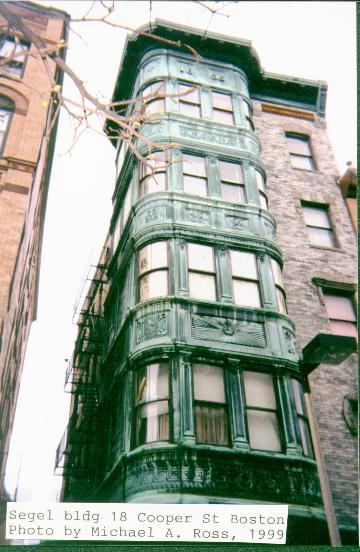
The Segel building at 18 Cooper Street is an example of such new construction completed in 1896.
Jewish immigrant consumers provided a ready market for kosher chickens and meats. One of the companies formed to satisfy such poultry demand was Menorah Products, Inc. That company's "schlachthaus" (Yiddish vernacular for slaughterhouse) building still stands at 112-114 Fulton Street. Today, it is subdivided into residential condominiums.
Retailers of all sorts of goods needed by Jewish families occupied store fronts on and off Salem Street. In 1892, Solomon and Jennie Rubinowitz (later known as Rabinovich and Rabinovitz) opened their "Greenie Store," a grocery, at 134 Salem Street. The Greenie Store, the first of many Rabb family groceries, survived at that location through 1908. The Rabb family groceries later would culminate in New England's largest grocery chain, Stop & Shop. Today, their first location is occupied by Bova's bakery.
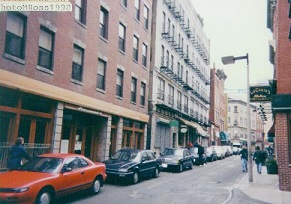
Salem Street today
These sites and the entrepreneurial spirits behind them reflect part of the Eastern European Jewish heritage here in Boston.
BUY YOUR OWN COPY OF BOSTONWALKS THE JEWISH FRIENDSHIP TRAIL!
We've walked what little remains of the once thriving Jewish communities of Boston's
West and North Ends and the South End.
Even today, with little of them standing, the few surviving sites make for a fascinating self-guided walking or bicycling tour.
Click here so you too can discover these sites on your own by using our Guidebook.
Links to Boston and New England
- Walk or bike ride with BostonWalks and explore the neighborhoods adjacent to the Charles River
- For 10
great places
to walk with water views in Boston,
click on this walking smiling
face

Brookline
MA Jewish History Sites
- Boston
MA Jewish History Sites
- Boston's
North End Synagogue Sites
- Cambridge
MA Jewish History Sites
- Boston's
South End Jewish History Sites
- Boston,
Brookline, and Cambridge Houses of Worship
- Boston
MA's Top Ten Waterside Places to Walk
click on this walking smiling face

Brookline
MA Jewish History Sites

On-line selections from Michael
Alan Ross' new, |
Now available!The Jewish Friendship Trail Guidebook6
Self-Guided Walking/Bicycling Jewish Boston History ToursCovers
Boston, Brookline, and Cambridge Softcover 198 pages with maps &
b/w photos Click here |
Now available!
Ways to Self-Struggle with
Classic MoralsIn Song, Poetry, and Prose
Covers 10 Commandments Plus One Other! Softcover 153 pages with
practical suggestions pages! Click here |

Copyright Michael Alan Ross, 1999-2015. All Rights Reserved.
Email: BostonWalks
by Michael Alan Ross |
Boston Walks
|

Click here for 10 reasons for more bike trails!
|
Do you know how many Americans die yearly in car crashes?...
 ...How many?
...How many?
Isn't it time to Attract Middle Class Families Back into Our Cities?
Here's 10 Ways to bring middle-class families back into cities like NYC:
10 Ways to Bring Middle Class Families Back into New York City, Boston, Baltimore, Philadelphia, Washington, DC, Atlanta, and other Citiesconsidering the best of the suburban paradigm for our large cities. |
Are you curious about what are some of the ethical reasons for single-payer universal health care insurance?10 Moral Reasons for One Payer Universal Health Care Insurance for Americain light of Hillel's If I'm only for myself, what am I? |
|
We know that there are other belly laughs our there.
|
|
Sing Sense to America
|



Question: What's a political mensch?
Answer #1 |


BostonWalksIntegrating the urban, modern Jewish American city experience with its historical sites and themes in such locales as Boston, MA, Portland, ME, East Bay and Providence, RI, and the Upper West Side of Manhattan, NYC.
|



